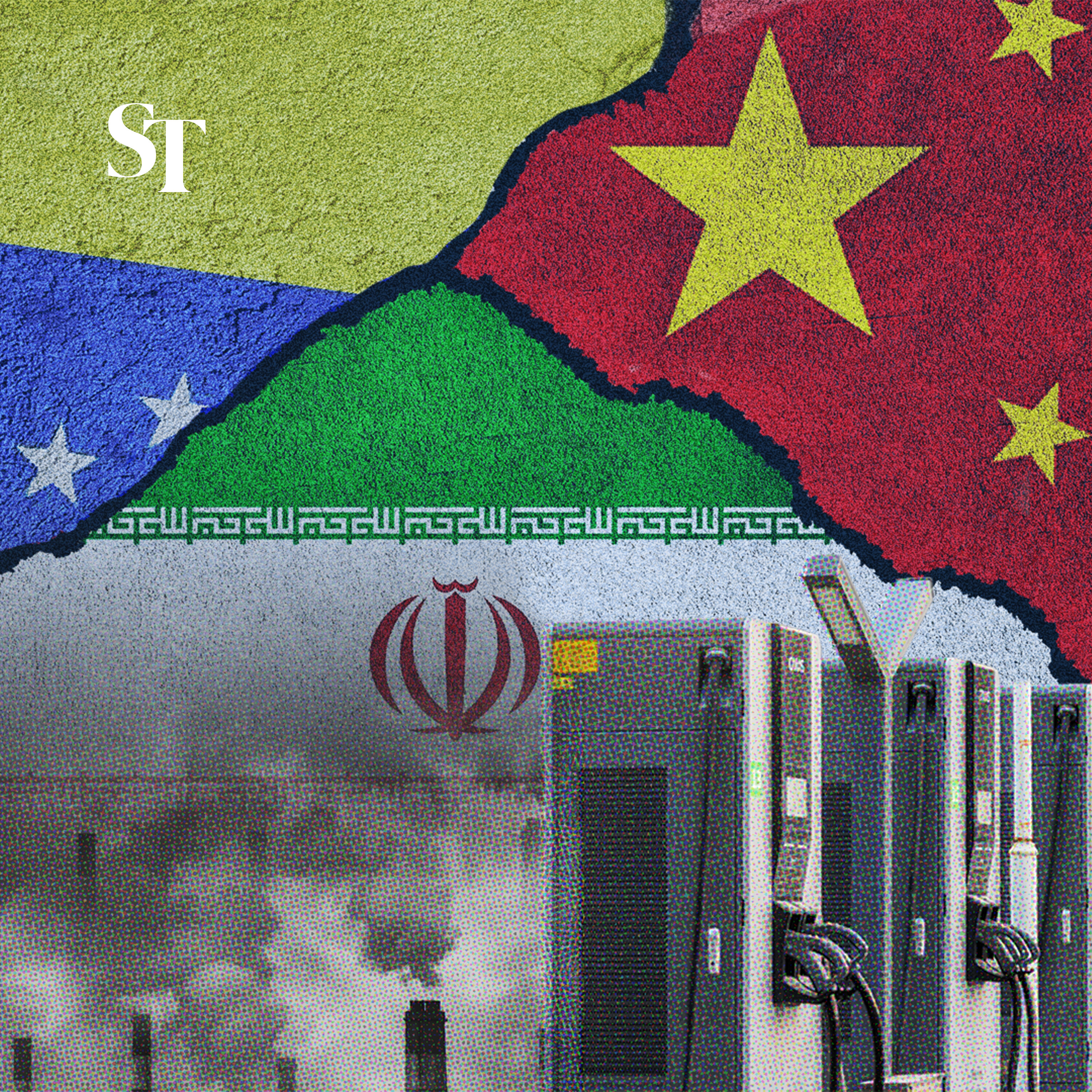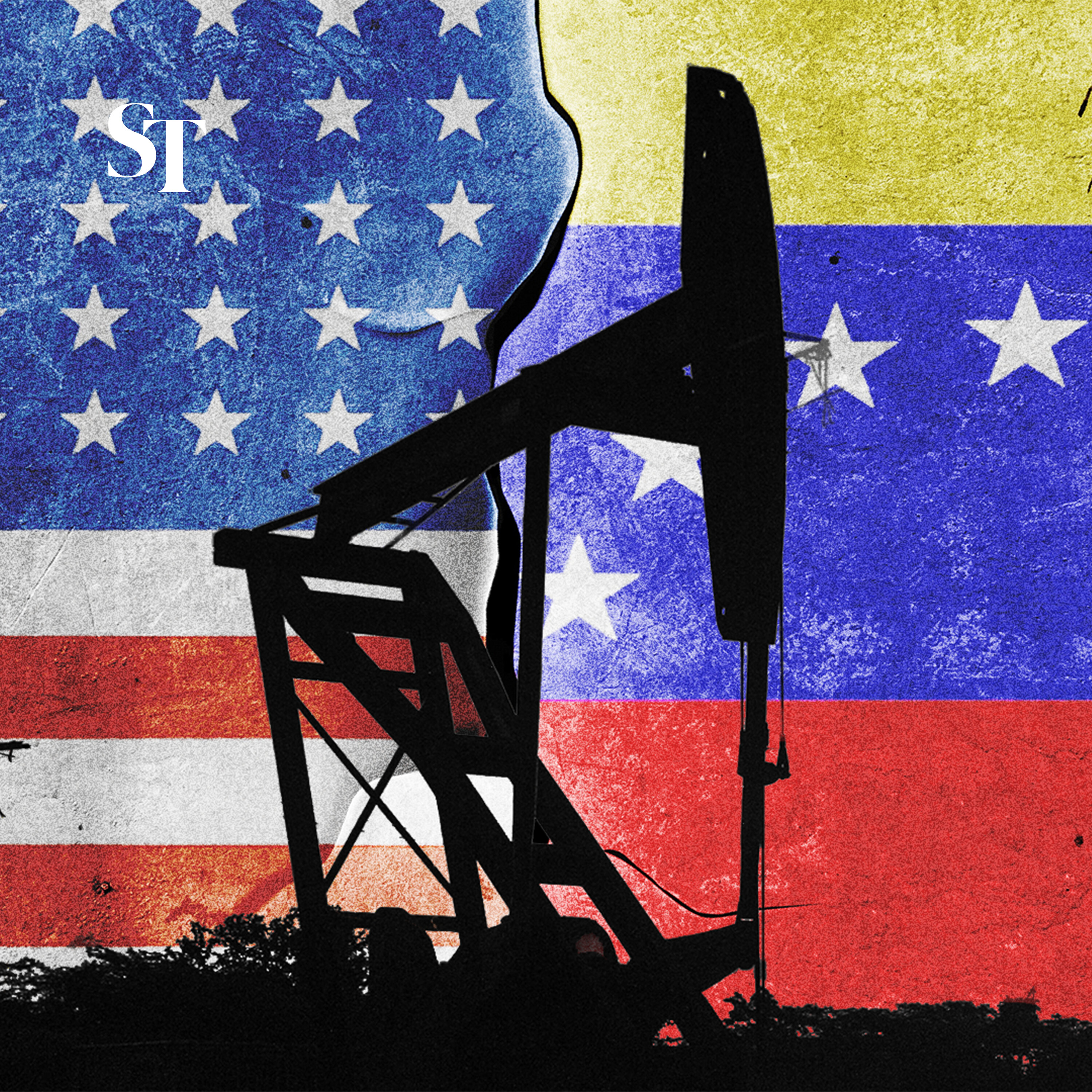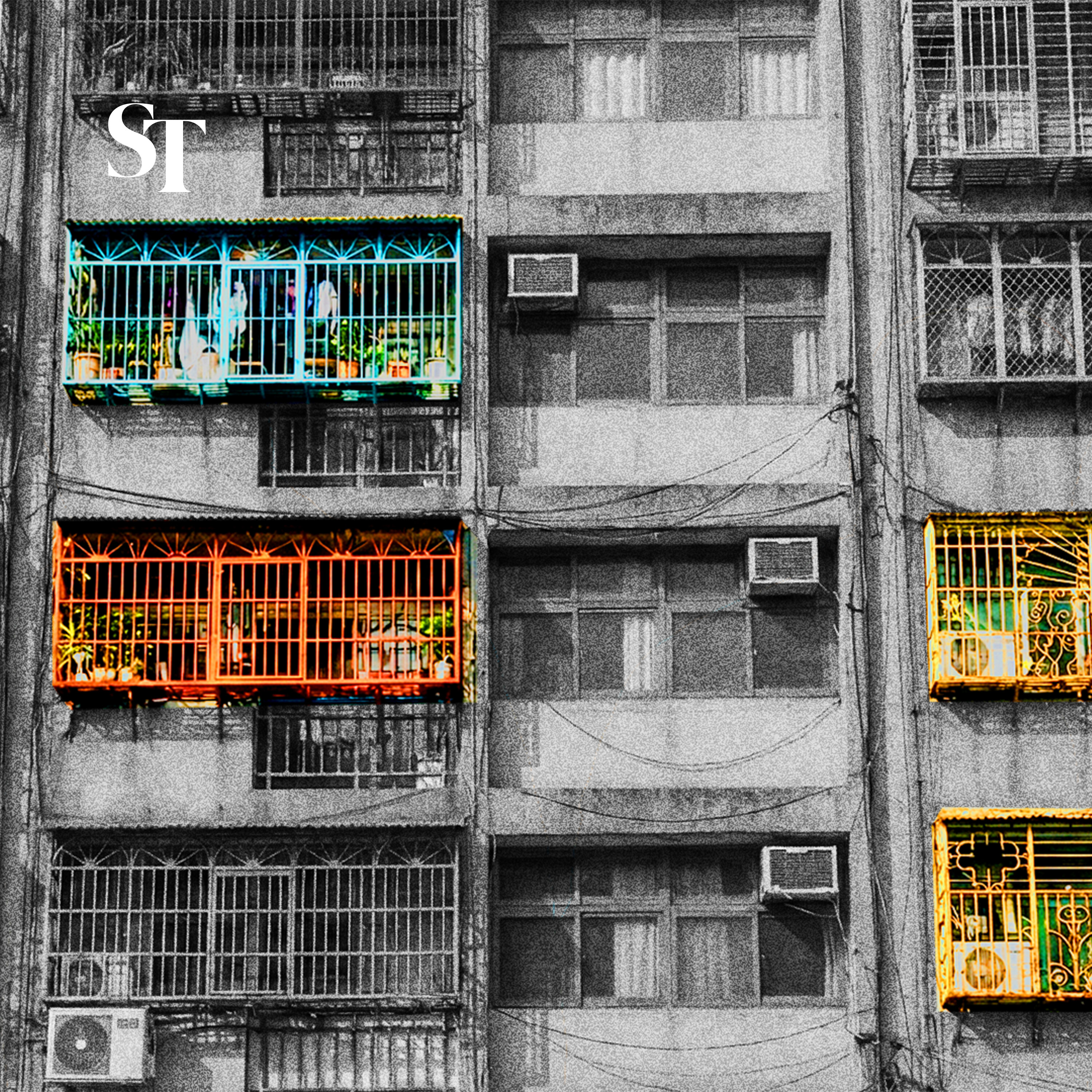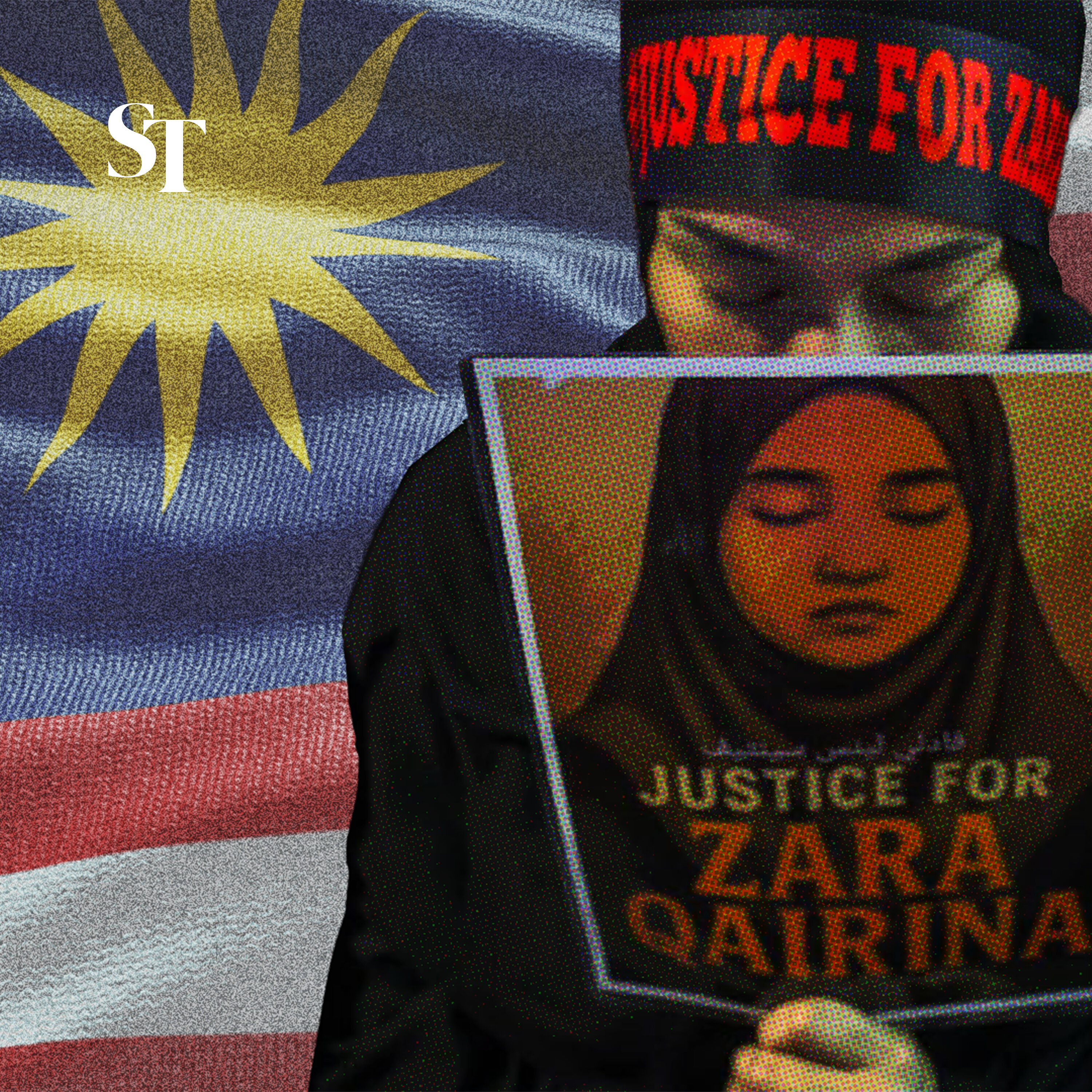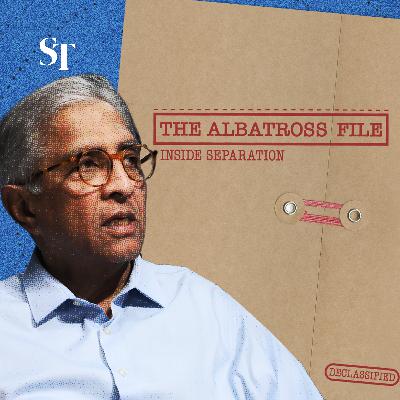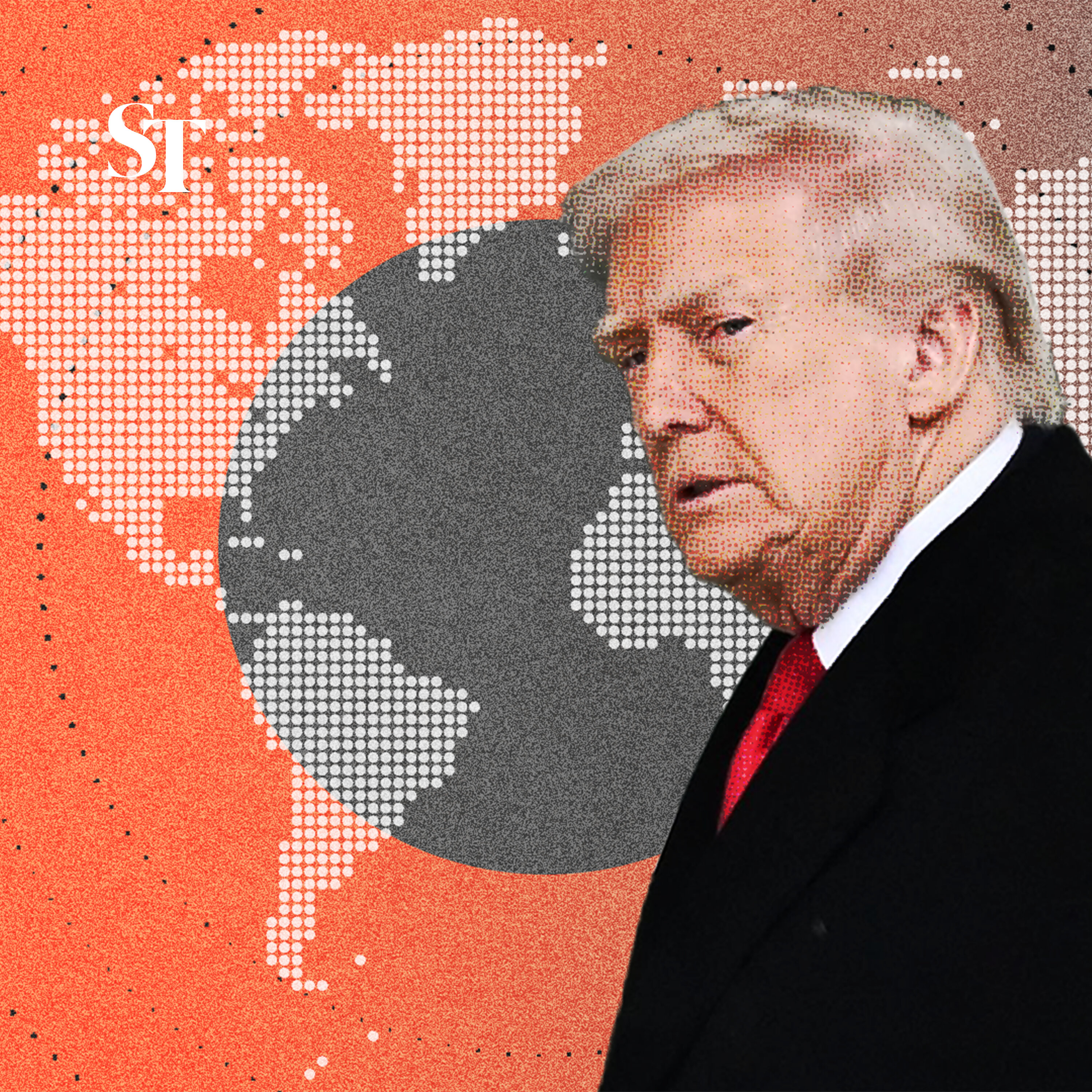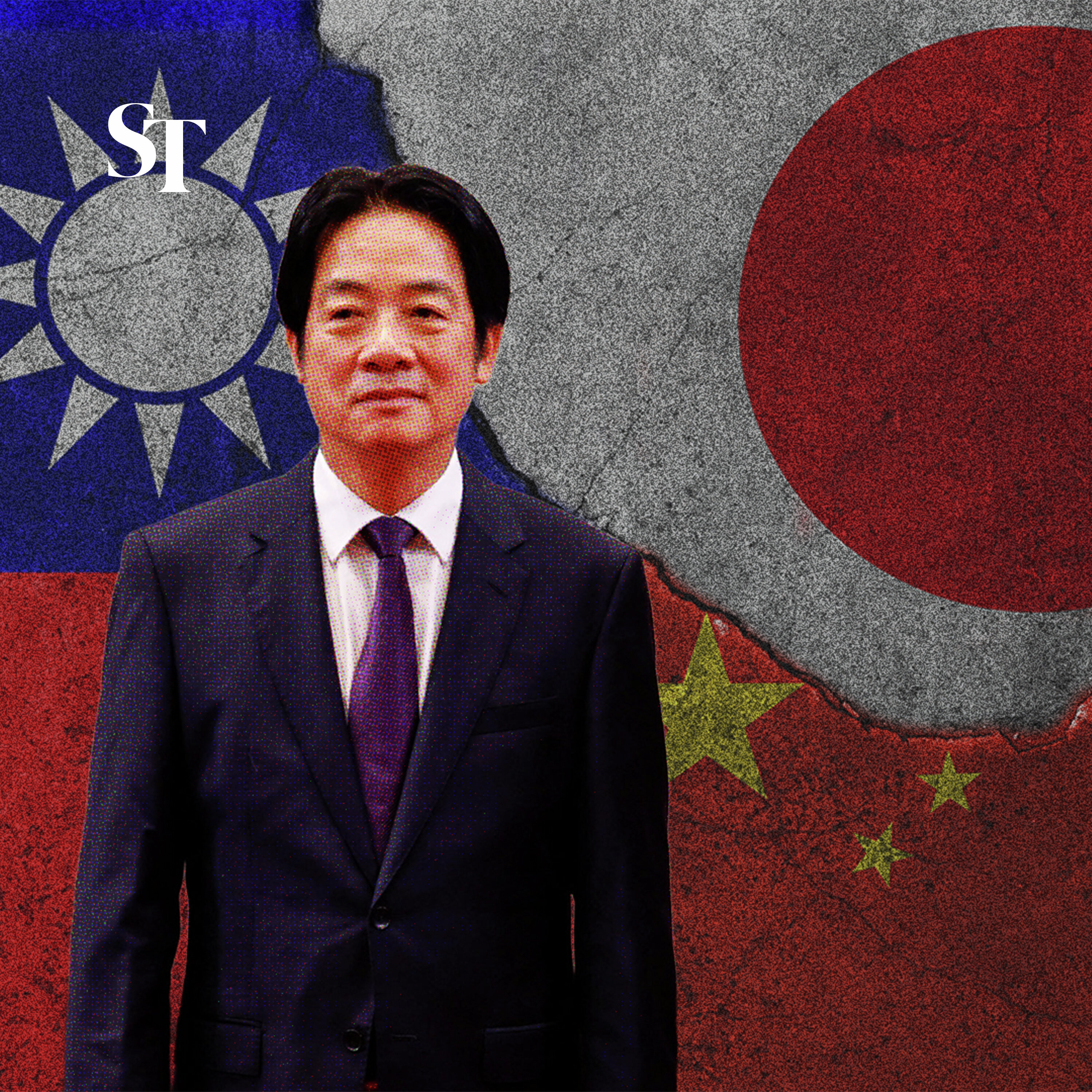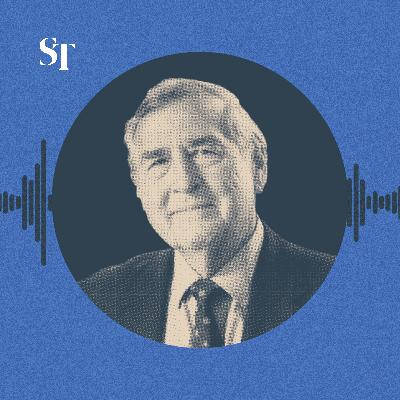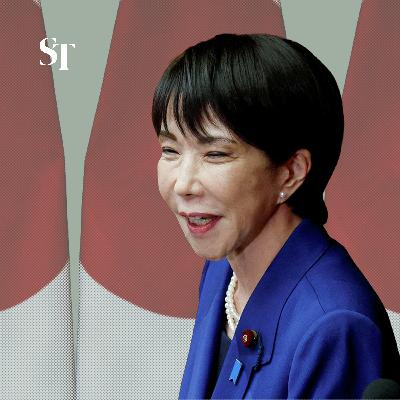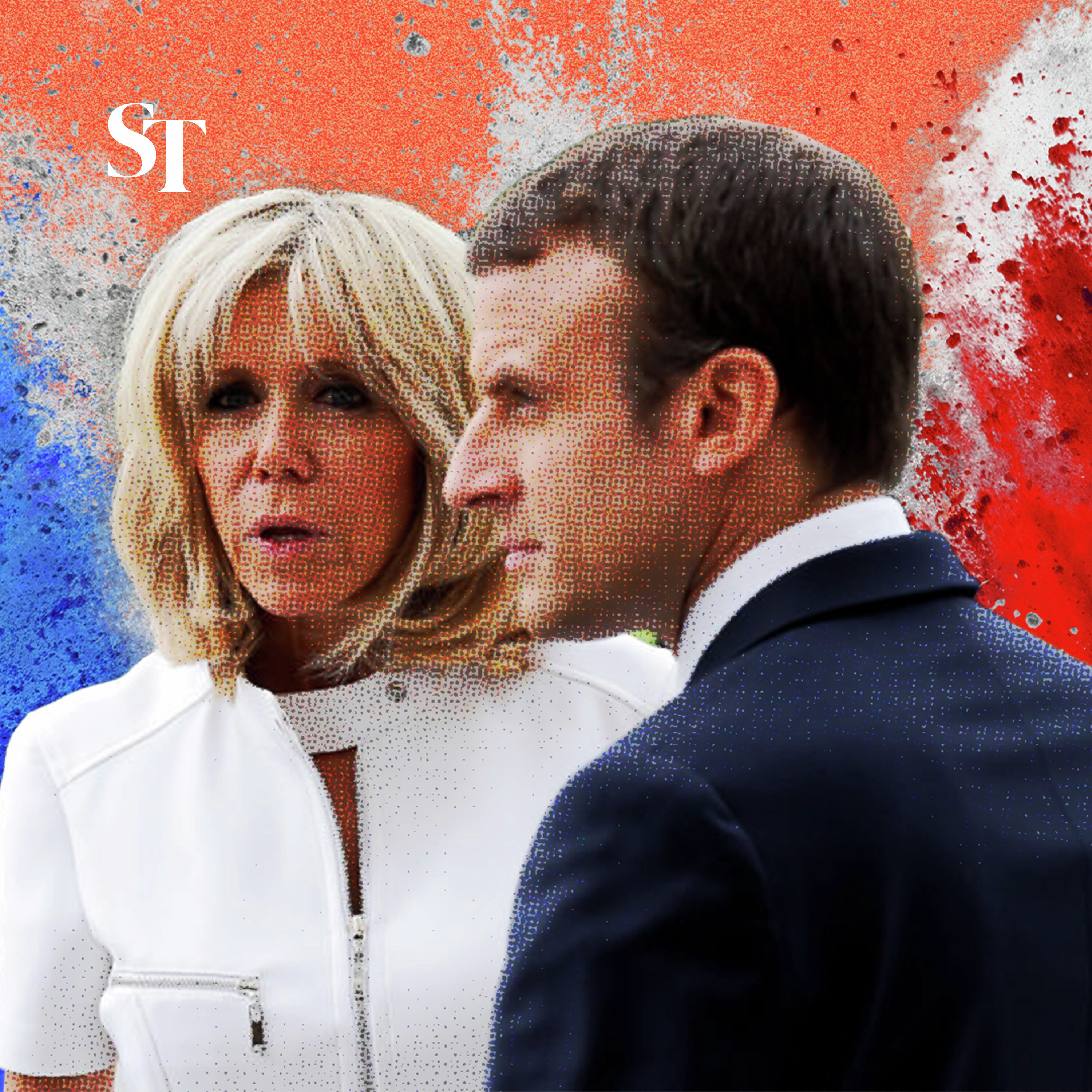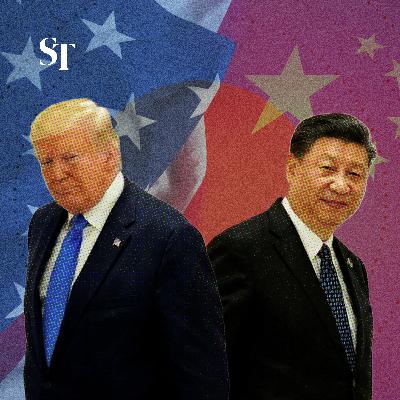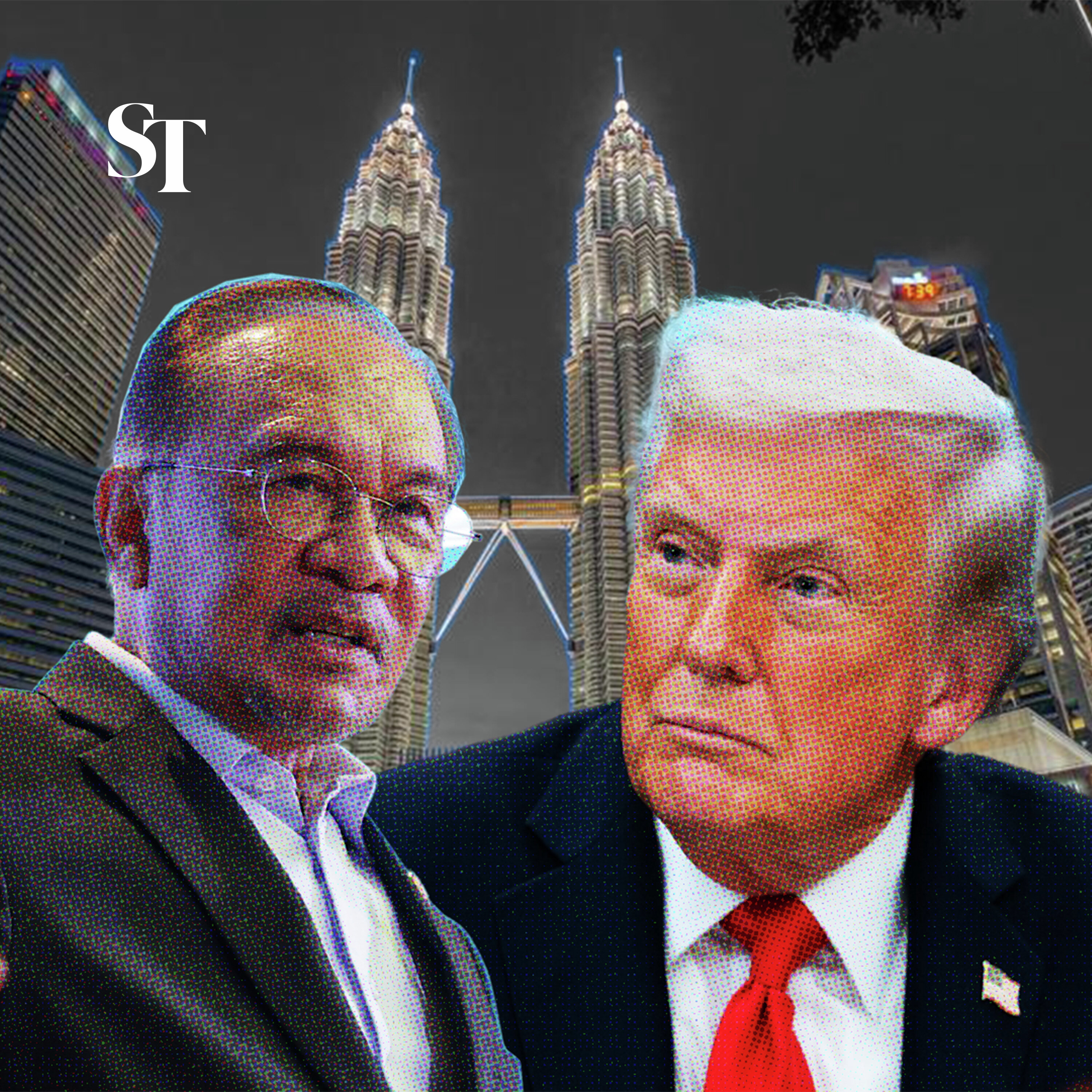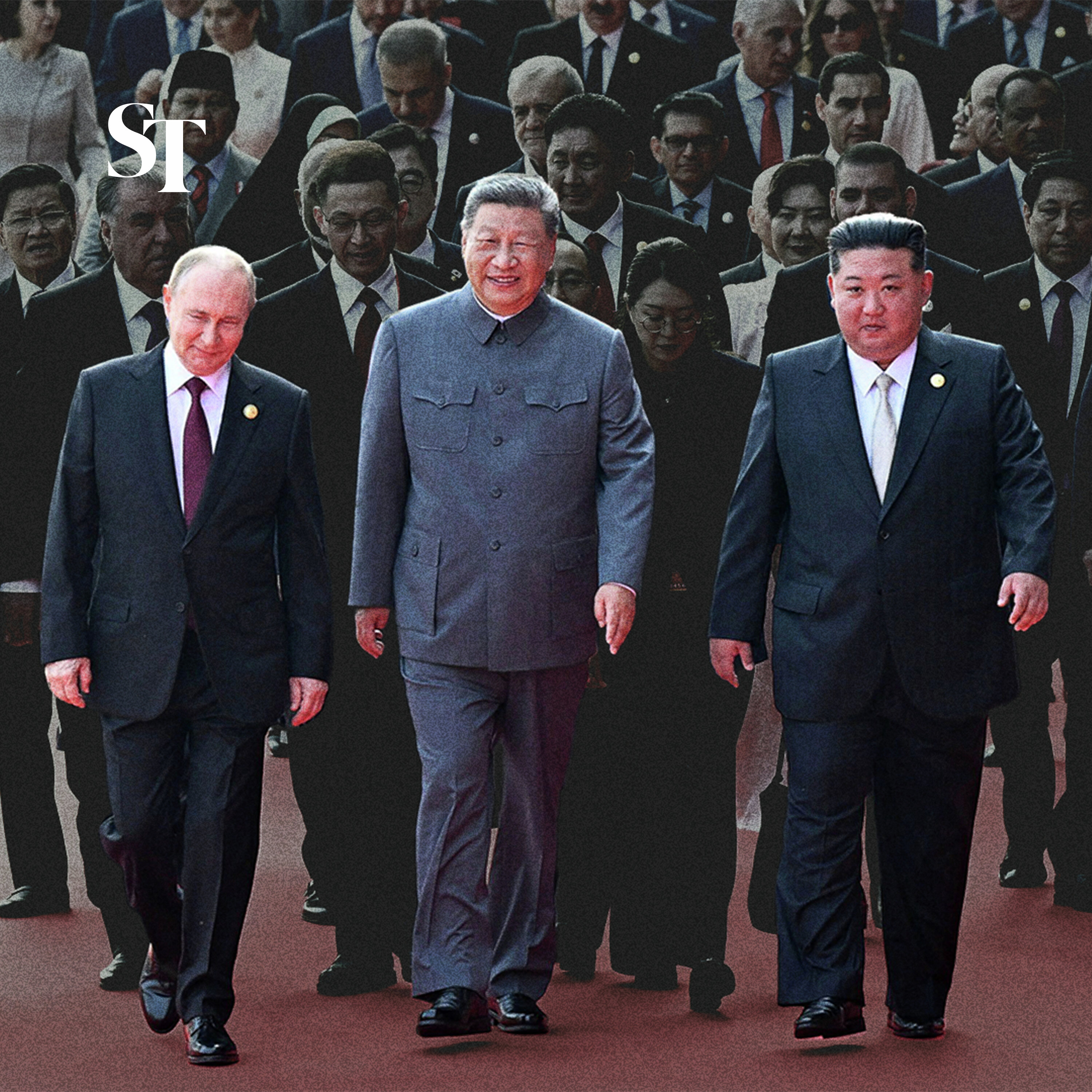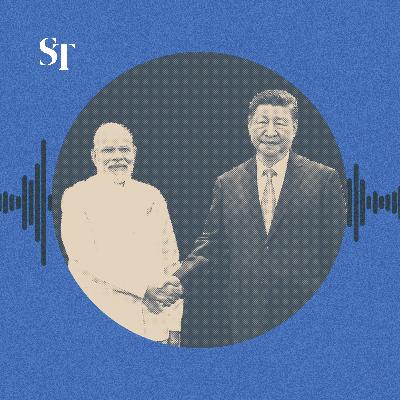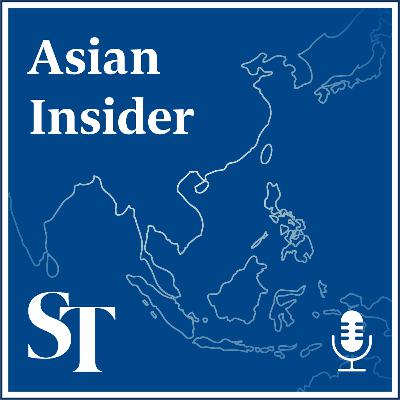Discover Asian Insider
Asian Insider

Asian Insider
Author: SPH Media
Subscribed: 121Played: 6,051Subscribe
Share
© 2026 The Straits Times
Description
Synopsis: Every Friday, get our distinct take on global issues with an Asian perspective, with ST’s globally-based correspondents.
Produced and edited by: Fa'izah Sani
Executive producer: Ernest Luis
A podcast by The Straits Times, SPH Media.
546 Episodes
Reverse
Hong Kong prides itself on being a first world city. So how did such a thing like the Tai Po fire happen?Synopsis: Every first Friday of the month, The Straits Times catches up with its foreign correspondents about life and trends in the countries they're based in. On Nov 26, 2025, a fire swept through Wang Fuk Court in Hong Kong's Tai Po district, killing 168 people. What also perished in that inferno was a certain trust in the system to keep everyone safe. The Straits Times’ Hong Kong Correspondent Magdalene Fung, a long-time resident of the city, talks about her experience covering the disaster. She also wrestles with the question of how Hong Kong’s tolerance for cutting corners cuts both ways. There is ingenuity. But the acceptance of quick, convenient fixes has also resulted in a society that collectively allowed the fire to happen. Highlights (click/tap above): 01:04 On the ground, covering the fire 03:52 A system that failed 09:54 But a society that also helped 11:03 Low standards and quick, convenient fixes 16:12 The fire doors are still not closed Read Magdalene Fung’s article here: https://str.sg/JyX2y Read Li Xueying’s articles: https://str.sg/iqmR Follow Li Xueying on LinkedIn: https://str.sg/ip4x Sign up for ST’s weekly Asian Insider newsletter: https://str.sg/sfpz Host: Li Xueying (xueying@sph.com.sg) Edited by: Fa’izah Sani Executive producer: Ernest Luis Follow Asian Insider on Fridays here: Channel: https://str.sg/JWa7 Apple Podcasts: https://str.sg/JWa8 Spotify: https://str.sg/JWaX Feedback to: podcast@sph.com.sg SPH Awedio app: https://www.awedio.sg --- Follow more ST podcast channels: All-in-one ST Podcasts channel: https://str.sg/wvz7 Get more updates: http://str.sg/stpodcasts The Usual Place Podcast YouTube: https://str.sg/4Vwsa --- Get The Straits Times app, which has a dedicated podcast player section: The App Store: https://str.sg/icyB Google Play: https://str.sg/icyX --- #STAsianInsiderSee omnystudio.com/listener for privacy information.
There is also a human cost to China's clean energy transition. Synopsis: Every fourth Friday of the month, The Straits Times will now analyse the hottest political and trending talking points, alternating between its Malaysia and Greater China bureaus. For January, host and deputy foreign editor Albert Wai teams up again with senior China correspondent Yew Lun Tian. Dramatic developments in Venezuela and Iran, both important oil suppliers for China, have exposed Beijing’s vulnerability in terms of energy security. Oil only accounts for around 18 per cent of China’s energy mix but most of this is imported. While both regimes have enjoyed solid ties with Beijing, the reality is there is little China can do directly to preserve its interests there. Domestically, China has achieved remarkable success in its clean energy transition. But the human cost of this effort, particularly when it comes to poorer communities, should not be underestimated. Clean tech may have played a part in China’s soft power rise (BYD electric vehicles and solar panels are obvious examples), but there is no guarantee that this will translate into a stronger hand geopolitically. Highlights (click/tap above): 2:02 Are China’s interests in Venezuela dead in the water? 4:58 Impacts of developments in Venezuela, Iran on upcoming Trump-Xi meeting 7:37 Is China prepared to use force to defend its energy security interests? 09:44 The human cost of China’s clean energy transition 14:11 Challenges in clean energy storage, distribution 17:28 Clean tech fuels China’s soft power rise 20:14 Existential survival instinct: Running out of energy Read more: https://str.sg/tBih Register for Asian Insider newsletter: https://str.sg/stnewsletters Host: Albert Wai (albertw@sph.com.sg) Produced and edited by: Fa’izah Sani Executive producer: Ernest Luis Follow Asian Insider Podcast on Fridays here: Channel: https://str.sg/JWa7 Apple Podcasts: https://str.sg/JWa8 Spotify: https://str.sg/JWaX Feedback to: podcast@sph.com.sg SPH Awedio app: https://www.awedio.sg --- Follow more ST podcast channels: All-in-one ST Podcasts channel: https://str.sg/wvz7 Get more updates: http://str.sg/stpodcasts The Usual Place Podcast YouTube: https://str.sg/4Vwsa --- Get The Straits Times app, which has a dedicated podcast player section: The App Store: https://str.sg/icyB Google Play: https://str.sg/icyX --- #STAsianInsiderSee omnystudio.com/listener for privacy information.
We dissect the abduction of a sitting president and predict what might come next. Synopsis: Every third Friday of the month, The Straits Times gets its US Bureau Chief to analyse the hottest political and trending talking points. Was it all about oil? Transnational crime cartels? Or China? In this episode, US Bureau Chief Bhagyashree Garekar chats with Hoover Fellow Joseph Ledford and veteran oil analyst Carl Larry to understand Washington’s real game in Venezuela. Dr Joseph Ledford is a Hoover Fellow and the Assistant Director of the Hoover History Lab at the Hoover Institution. His research focuses on the exercise of American power, especially in the Western Hemisphere. Mr Carl Larry is a Sales Manager at Enverus MarketView with over 25 years of experience in the oil and gas sector, covering financial, commercial, and physical aspects of the market. Highlights (click/tap above): 1:31 The 3 goals of the US military operation in Venezuela 3:45 So, was it about oil? 6:31 Is the world going to get cheaper petrol now? 7:54 Why does the US not want China as a ‘neighbour’? 16:42 Why was Machado not made president? 21:26 Will the US’ shale miners be hurt? 23:58 Lessons from Iraq and clues for Asia 26:45 How will the US recover from the reputational hit? Read Bhagyashree Garekar’s articles: https://str.sg/whNo Bhagyashree Garekar’s LinkedIn: https://str.sg/gD6E Sign up for ST’s weekly Asian Insider newsletter: https://str.sg/sfpz Host: Bhagyashree Garekar (bhagya@sph.com.sg) Produced and edited by: Fa’izah Sani Executive producer: Ernest Luis Follow Asian Insider Podcast on Fridays here: Channel: https://str.sg/JWa7 Apple Podcasts: https://str.sg/JWa8 Spotify: https://str.sg/JWaX Feedback to: podcast@sph.com.sg SPH Awedio app: https://www.awedio.sg --- Follow more ST podcast channels: All-in-one ST Podcasts channel: https://str.sg/wvz7 Get more updates: http://str.sg/stpodcasts The Usual Place Podcast YouTube: https://str.sg/theusualplacepodcast --- Get The Straits Times app, which has a dedicated podcast player section: The App Store: https://str.sg/icyB Google Play: https://str.sg/icyX --- #STAsianInsiderSee omnystudio.com/listener for privacy information.
As Asia’s militaries show an increasing appetite to deploy drones – most recently during the Thai-Cambodian skirmishes and the brief India-Pakistan conflict in May, 2025, we speak to the chief executive of the company that makes lethal Unmanned Aerial Systems such as the Predator, Reaper and Sea Guardian. Synopsis: The Straits Times’ senior columnist Ravi Velloor distils 45 years of experience covering the Asian continent, with expert guests. In this wide-ranging conversation, Ravi speaks with Dr Vivek Lall, Chief Executive of General Atomics Global Corp, on trends in modern warfare, the rise of data-driven hi-tech weapons, weapons that ‘loiter’ in the air awaiting command from the ground and space as the next frontier of contestation. They also focus on UASs – in warfare and potentially for civil use – and discuss whether unmanned drones have raised the risk of warfare by not putting pilots directly in harm’s way. Highlights (click/tap above): 2:46 'The future is in unmanned systems' 5:45 ‘Hey, there’s an UAV flying right alongside me’ 7:00 Asian militaries buying Predators and eyeing EMALS: India, Japan, Taiwan, Asean 14:05 Can US go it alone in defence research? 16:43 Does unmanned raise risk of war? 20:32 ‘There will always be pilots’ Read Ravi's columns: https://str.sg/3xRP Follow Ravi on X: https://twitter.com/RaviVelloor Sign up for ST’s weekly Asian Insider newsletter: https://str.sg/sfpz Host: Ravi Velloor (velloor@sph.com.sg) Produced and edited by: Fa’izah Sani Executive producer: Ernest Luis Follow Asian Insider Podcast on Fridays here: Channel: https://str.sg/JWa7 Apple Podcasts: https://str.sg/JWa8 Spotify: https://str.sg/JWaX Feedback to: podcast@sph.com.sg SPH Awedio app: https://www.awedio.sg --- Follow more ST podcast channels: All-in-one ST Podcasts channel: https://str.sg/wvz7 Get more updates: http://str.sg/stpodcasts The Usual Place Podcast YouTube: https://str.sg/4Vwsa --- Get The Straits Times app, which has a dedicated podcast player section: The App Store: https://str.sg/icyB Google Play: https://str.sg/icyX --- #STAsianInsiderSee omnystudio.com/listener for privacy information.
Metal window grilles were meant to keep households safe from burglars but they have been fingered as eyesores. Synopsis: Every first Friday of the month, The Straits Times catches up with its foreign correspondents about life and trends in the countries they're based in. One of Taiwan’s names is "Formosa" - given by Portuguese sailors who sighted the island in the 16th century and called it “Beautiful Island” given its natural wonders such as mountains, forests and hot springs. In more recent times though, Taiwanese officials and designers have complained about a man-made blight across its cities: ubiquitous, often rusty, metal grilles criss-crossing windows. They surface a larger discussion about the pace of urban renewal in Taiwan - a challenge that many Asian cities face, given the competing imperatives between urban renewal, heritage conservation and the rights of homeowners. Highlights (click/tap above): 1:00 The ugly truth about Taipei's buildings 2:06 Taiwan's window bars mystery 4:53 The beauty behind the rust 7:42 Challenges in urban redevelopment 12:12 Cycling and pedestrian safety in Taiwan Read Yip Wai Yee’s article here: https://str.sg/7U6y Read Li Xueying’s articles: https://str.sg/iqmR Follow Li Xueying on LinkedIn: https://str.sg/ip4x Sign up for ST’s weekly Asian Insider newsletter: https://str.sg/sfpz Host: Li Xueying (xueying@sph.com.sg) Edited by: Fa’izah Sani Executive producer: Ernest Luis Follow Asian Insider on Fridays here: Channel: https://str.sg/JWa7 Apple Podcasts: https://str.sg/JWa8 Spotify: https://str.sg/JWaX Feedback to: podcast@sph.com.sg SPH Awedio app: https://www.awedio.sg --- Follow more ST podcast channels: All-in-one ST Podcasts channel: https://str.sg/wvz7 Get more updates: http://str.sg/stpodcasts The Usual Place Podcast YouTube: https://str.sg/4Vwsa --- Get The Straits Times app, which has a dedicated podcast player section: The App Store: https://str.sg/icyB Google Play: https://str.sg/icyX --- #STAsianInsiderSee omnystudio.com/listener for privacy information.
Malaysia’s 2025 was marked by a stormy PKR election, school violence, and a scandal rocking its football team. Synopsis: Every fourth Friday of the month, The Straits Times analyses the hottest political and trending talking points, alternating between its Malaysia and China bureaus. For our December episode, ST’s Malaysia bureau chief Shannon Teoh and host Zurairi A.R. are joined by Nik Nazmi, a member of Parliament from PKR, and former minister of natural resources and environmental stability. We look back at the Malaysian stories that shook 2025, from Prime Minister Anwar Ibrahim’s Cabinet vacancy and the death of Zara Qairina amid rising school violence, to the scandal engulfing Harimau Malaya’s heritage players. Highlights (click/tap above): 5:18 Cabinet vacancy and unity government leadership 11:13 Who leads PKR next? Is it Nurul Izzah's turn? 16:07 Are authorities failing to protect Malaysian children? 19:51 Band-aid solutions to solve school violence 25:41 Criminal case for footballers' citizenship spoofing 28:08 Can Harimau Malaya recover its football credentials? 32:21 Rolling back the time zone to UTC+7 for an extra hour of sunrise Read more: The curious case of four missing Cabinet ministers in Malaysia https://str.sg/A9fZ Death of student in Sabah raises hurdle for Malaysian PM Anwar as he faces tough state polls soon https://str.sg/hpptQ Malaysia fans fear Asian Cup blow as Fifa probe casts doubt on naturalised players https://str.sg/p62X Malaysia faces renewed calls to rewind the clock, 40 years after shifting to UTC+8 https://str.sg/qnuM Read Zurairi A.R.’s articles: https://str.sg/DCfr Read Shannon Teoh's articles: https://str.sg/wzyK Sign up for ST’s weekly Asian Insider newsletter: https://str.sg/sfpz Host: Zurairi A.R. (zurairi@sph.com.sg) Produced and edited by: Fa’izah Sani Executive producer: Ernest Luis Follow Asian Insider Podcast on Fridays here: Channel: https://str.sg/JWa7 Apple Podcasts: https://str.sg/JWa8 Spotify: https://str.sg/JWaX Website: http://str.sg/stpodcasts Feedback to: podcast@sph.com.sg SPH Awedio app: https://www.awedio.sg --- Follow more ST podcast channels: All-in-one ST Podcasts channel: https://str.sg/wvz7 Get more updates: http://str.sg/stpodcasts The Usual Place Podcast YouTube: https://str.sg/theusualplacepodcast --- Get The Straits Times app, which has a dedicated podcast player section: The App Store: https://str.sg/icyB Google Play: https://str.sg/icyX --- #STAsianInsiderSee omnystudio.com/listener for privacy information.
Find out why the world is likely to stay dollar-centric even as countries try to toggle away from the greenback. Synopsis: Every third Friday of the month, The Straits Times gets its US bureau chief to analyse the hottest political and trending talking points. Harvard historian Mary Bridges, the author of Dollars and Dominion, explains why the world is likely to stay dollar-centric even as China, Russia, India and many countries try to toggle away from the greenback and into rival currencies like the yuan or the euro. In this episode, Dr Bridges, the Ernest May Fellow in History & Policy at Harvard University’s International Security Programme, tells US bureau chief Bhagyashree Garekar that while the world is becoming multipolar and diversified, the thick layer of institutions, relationships and trust built around the US dollar mean that any transition will take a very long time. Highlights (click/tap above): 0:59 How the US dollar became the king of currencies 3:58 How the US banks went into Asia 11:17 Will the US dollar lose its dominance? 19:17 Are crypto-currencies encroaching on dollar dominion? 21:11 Are Trump’s tariffs spurring de-dollarisation? 23:49 Why China’s BRI is also a currency play Read Bhagyashree Garekar’s articles: https://str.sg/whNo Bhagyashree Garekar’s LinkedIn: https://str.sg/gD6E Sign up for ST’s weekly Asian Insider newsletter: https://str.sg/sfpz Host: Bhagyashree Garekar (bhagya@sph.com.sg) Produced and edited by: Amirul Karim Executive producer: Ernest Luis Follow Asian Insider Podcast on Fridays here: Channel: https://str.sg/JWa7 Apple Podcasts: https://str.sg/JWa8 Spotify: https://str.sg/JWaX Feedback to: podcast@sph.com.sg SPH Awedio app: https://www.awedio.sg --- Follow more ST podcast channels: All-in-one ST Podcasts channel: https://str.sg/wvz7 Get more updates: http://str.sg/stpodcasts The Usual Place Podcast YouTube: https://str.sg/theusualplacepodcast --- Get The Straits Times app, which has a dedicated podcast player section: The App Store: https://str.sg/icyB Google Play: https://str.sg/icyX --- #STAsianInsiderSee omnystudio.com/listener for privacy information.
Our guest reveals pioneer leaders’ differing views on Singapore’s Aug 9, 1965 split from Malaysia. Synopsis: The Straits Times’ chief columnist Sumiko Tan speaks to Janadas Devan, senior adviser at the Ministry of Digital Development and Information, on how the The Albatross File: Inside Separation sheds fresh light on the decisions that led to Singapore’s independence. Edited by Susan Sim, the 488-page volume is co-published by Straits Times Press and the National Archives of Singapore, and was launched by Senior Minister Lee Hsien Loong on Dec 7 alongside an exhibition at the National Library. Mr Janadas, who coordinated the book, explains that Singapore’s 1963 merger with Malaysia was fraught from the outset, with the 1964 race riots further straining ties. Finance Minister Dr Goh Keng Swee kept a private file he code-named “Albatross”, a reference to the bird in Samuel Taylor Coleridge’s famous 1798 poem, The Rime of the Ancient Mariner, symbolising the burden of the troubled merger. Documents inside the file range from an early Cabinet memo by Prime Minister Lee Kuan Yew to the final Separation Agreement, and includes Dr Goh’s handwritten notes of his meetings with Malaysian leaders. Mr Janadas highlights how merger with Malaysia was a fundamental aim of Mr Lee’s People’s Action Party. It is something young Singaporeans today might find hard to understand, he acknowledges. But the merger was problematic, and proposals for a looser federation eventually collapsed, derailed by unclear terms and British anxieties as Indonesia’s Confrontation was then raging. Dr Goh led the talks for Singapore, navigating sensitive issues and political tensions. Within the Singapore leadership, views differed on whether Singapore should — or could — make it alone. Dr Goh pushed for going separate ways as the best option, while ministers Toh Chin Chye and S. Rajaratnam opposed separation once they learnt of it. Mr Lee was deeply torn, but ultimately authorised the move. Within a few years, Singapore's leaders concluded that Separation was the best outcome for Singapore. Mr Janadas also reflects on his father, Mr Devan Nair, who was the only PAP MP voted into the Malaysian Parliament at the time. When the two sides separated, his father decided to stay on in Malaysia, only returning to Singapore in 1969. Highlights (click/tap above): 5:11 The political climate of the 1960s 7:59 Why young Singaporeans may struggle to understand why the PAP pushed for merger with Malaysia 9:32 Early trouble after merger in 1963; Umno lost 3 seats it contested in Singapore GE to PAP’s Malay candidates 13:13 Was a looser federation ever an option? 17:23 The role of the British as Singapore and Malaysia leaders tried to work through their disagreements 18:35 What did Lee Kuan Yew mean by making life intolerable for the Malaysian leadership? 27:35 Diverging views: Lee always wanted a looser federation but Dr Goh felt separation was the answer 32:45 How Mrs Lee says that the closest her husband came to a nervous breakdown was August 9th, 1965 39:03 Janadas on how his father, Devan Nair, refused to accept Separation at first, before being convinced by Lee to eventually return 44:32 Do Singaporeans today underestimate how fragile the nation’s early years were? Buy the book: The Albatross File: Inside Separation (Standard/Collector’s Editions) https://www.stbooks.sg/products/the-albatross-file-inside-separation-collectors-edition Book tickets to the exhibition opening Dec 8 at the National Library Building: https://thealbatrossfile.nlb.gov.sg Host: Sumiko Tan (sumiko@sph.com.sg) Read Sumiko’s articles: https://str.sg/Jbhe Sign up for ST’s weekly Asian Insider newsletter: https://str.sg/sfpz Produced and edited by: Fa’izah Sani Executive producer: Ernest Luis Follow Asian Insider Podcast on Fridays here: Channel: https://str.sg/JWa7 Apple Podcasts: https://str.sg/JWa8 Spotify: https://str.sg/JWaX Feedback to: podcast@sph.com.sg SPH Awedio app: https://www.awedio.sg --- Follow more ST podcast channels: All-in-one ST Podcasts channel: https://str.sg/wvz7 Get more updates: http://str.sg/stpodcasts The Usual Place Podcast YouTube: https://str.sg/theusualplacepodcast --- Get The Straits Times app, which has a dedicated podcast player section: The App Store: https://str.sg/icyB Google Play: https://str.sg/icyX --- #STAsianInsiderSee omnystudio.com/listener for privacy information.
Our guest expert explains the Americas-focused doctrine, inspired by the 19th-century Monroe Doctrine’s hemispheric stance. Synopsis: The Straits Times’ senior columnist Ravi Velloor distils 45 years of experience covering the Asian continent, with expert guests. In this wide-ranging conversation, Ravi speaks with Don McLain Gill, the eminent Filipino geopolitical expert and strategist, on declining US influence in Asia and the ‘Donroe’ Doctrine. They discuss the doctrine’s precursor, the Monroe Doctrine, and how key American allies in Asia are reacting to talk of the Donroe Doctrine. Ravi and Gill also discuss the potential of a ‘G-2', or Group of Two, which would include just the US and China. This, too, is a concept that many Asian nations with their own view of their place in the world, actively resist. Highlights: (Click/Tap Above) 1:24 What is the Donroe Doctrine? 4:47 Implications for Philippines 7:30 Reactions of allies Japan, South Korea, Australia, and quasi-ally India 13:10 ‘G2’ & the Donroe Doctrine: Clear concerns 16:11 A misguided strategy? US-China gap narrowing 19:47 Quad, Squad and increasing mini-laterals minus US Host: Ravi Velloor (velloor@sph.com.sg) Read Ravi's columns: https://str.sg/3xRP Follow Ravi on X: https://twitter.com/RaviVelloor Sign up for ST’s weekly Asian Insider newsletter: https://str.sg/sfpz Produced and edited by: Fa’izah Sani Executive producer: Ernest Luis Follow Asian Insider Podcast on Fridays here: Channel: https://str.sg/JWa7 Apple Podcasts: https://str.sg/JWa8 Spotify: https://str.sg/JWaX Feedback to: podcast@sph.com.sg SPH Awedio app: https://www.awedio.sg --- Follow more ST podcast channels: All-in-one ST Podcasts channel: https://str.sg/wvz7 Get more updates: http://str.sg/stpodcasts The Usual Place Podcast YouTube: https://str.sg/theusualplacepodcast --- Get The Straits Times app, which has a dedicated podcast player section: The App Store: https://str.sg/icyB Google Play: https://str.sg/icyX --- #STAsianInsiderSee omnystudio.com/listener for privacy information.
The island’s diplomatic space may be shrinking but it wants to engage the world on its own terms. Synopsis: Every fourth Friday of the month, The Straits Times will now analyse the hottest political and trending talking points, alternating between its Malaysia and Greater China bureaus. For November, host and deputy foreign editor Albert Wai connects with Taiwan correspondent Yip Wai Yee. They discuss Taiwan’s foreign policy preoccupations and the implications of the Beijing-Tokyo spat over remarks made by Japanese leader Sanae Takaichi on cross-strait tensions. Up against an increasingly dominant China, Taiwan is adopting what it calls “integrated diplomacy” as it seeks to buttress relations with like-minded partners. At the same time, the normalisation of so-called grey-zone tactics by the mainland against the island carries risks for Taiwan’s societal resilience and its ability to respond in the event of an actual attack. All eyes are on the next round of talks between American President Donald Trump and Chinese President Xi Jinping in the first half of 2026, as this could have far-reaching implications on Taiwan’s role on the global stage. Highlights (click/tap above): 1:49 Taipei’s “integrated diplomacy” 4:12 China-Japan spat over Taiwan 7:46 Shift in approach for cross-strait ties 10:35 What’s at stake when Trump and Xi meet in 2026 13:51 Leverage in tariff talks with the US 15:22 Grey-zone tactics 19:27 Breakthrough at European parliament 21:31 China Taipei or Chinese Taipei? Read more: https://str.sg/s4A7 Register for Asian Insider newsletter: https://str.sg/stnewsletters Host: Albert Wai (albertw@sph.com.sg) Produced and edited by: Fa’izah Sani Executive producer: Ernest Luis Follow Asian Insider Podcast on Fridays here: Channel: https://str.sg/JWa7 Apple Podcasts: https://str.sg/JWa8 Spotify: https://str.sg/JWaX Feedback to: podcast@sph.com.sg SPH Awedio app: https://www.awedio.sg --- Follow more ST podcast channels: All-in-one ST Podcasts channel: https://str.sg/wvz7 Get more updates: http://str.sg/stpodcasts The Usual Place Podcast YouTube: https://str.sg/theusualplacepodcast --- Get The Straits Times app, which has a dedicated podcast player section: The App Store: https://str.sg/icyB Google Play: https://str.sg/icyX --- #STAsianInsiderSee omnystudio.com/listener for privacy information.
Our expert guest explains why he predicts both men will seek good vibes in 2026. Synopsis: Every third Friday of the month, The Straits Times gets its US bureau chief to analyse the hottest political and trending talking points. In this episode, US bureau chief Bhagyashree Garekar hosts her special guest - Harvard Professor Graham Allison - who tells her how he manages to read Trump right, by taking him seriously, looking at his patterns amid all his statements, and noticing the trend lines. Prof Allison is the Douglas Dillon Professor of Government at Harvard University where he has taught for five decades. He is a leading analyst of national security with special interests in nuclear weapons, Russia, China, and decision-making. He has also written books, including Destined for War: Can America and China Escape Thucydides’s Trap?, published in 2017. He also had another book out earlier in 2013 - Lee Kuan Yew: The Grand Master’s Insights on China, the United States and the World - which has been a bestseller in the US and abroad. Highlights (click/tap above): 2:31 How well do Trump & Xi vibe? Getting a sense of their agendas for 2026 7:34 What do Trump and Xi want from each other? 9:31 Will Trump get hawkish on China ahead of 2026 election? 13:52 Why is Trump muted on China-Japan spat over Taiwan? 18:50 Why Trump is different from any other US president 21:48 How today’s China looks at today’s America 24:43 Will China be the world’s sole superpower? Read Bhagyashree Garekar’s articles: https://str.sg/whNo Follow Bhagyashree Garekar on LinkedIn: https://str.sg/gD6E Sign up for ST’s weekly Asian Insider newsletter: https://str.sg/sfpz Host: Bhagyashree Garekar (bhagya@sph.com.sg) Produced and edited by: Fa’izah Sani Executive producer: Ernest Luis Follow Asian Insider Podcast on Fridays here: Channel: https://str.sg/JWa7 Apple Podcasts: https://str.sg/JWa8 Spotify: https://str.sg/JWaX Feedback to: podcast@sph.com.sg SPH Awedio app: https://www.awedio.sg --- Follow more ST podcast channels: All-in-one ST Podcasts channel: https://str.sg/wvz7 Get more updates: http://str.sg/stpodcasts The Usual Place Podcast YouTube: https://str.sg/4Vwsa --- Get The Straits Times app, which has a dedicated podcast player section: The App Store: https://str.sg/icyB Google Play: https://str.sg/icyX --- #STAsianInsiderSee omnystudio.com/listener for privacy information.
Our guest expert looks at her political approach, as well as her personal side. Synopsis: The Straits Times’ senior columnist Ravi Velloor distils 45 years of experience covering the Asian continent, with expert guests. In this wide-ranging conversation, Ravi speaks with Professor Tomohiko Taniguchi, foreign policy adviser to the Cabinet of the late Prime Minister Shinzo Abe and one of the most authoritative voices on Japan about the ascend and likely impact of Sanae Takaichi. They discuss Ms Takaichi’s first diplomatic encounter with US President Donald Trump, her hardline approach to defence, and China, Japan’s shifting priorities in Asean as Philippines rises in salience and Indonesia declines, Tokyo’s dread of Trump’s ‘G-2’ talk, the future of the Quad security dialogue, and her approach to economic policy. They also discuss Ms Takaichi’s softer, personal side – her early life, propensity to ride powerful motorbikes, marriage to the same man twice and finally, the question: Now that Japan has its first woman PM, is it time to consider an Empress for Japan? Highlights (click/tap above): 1:00 Shinzo Abe’s protege? Yes, and no. 5:00 Asean summit and first encounter with Donald J Trump 10:00 Japan’s dread of Trump’s “G-2” talk 12:00: Defence thrust, and the nuclear question 18:30 China, Japan’s key neighbour 22:30 For Tokyo, Indonesia dips while Philippines rises 26:00 Is Quad dead in the water? 31:00 Japan and foreigners 36:10 Sanae Takaichi: woman, wife, rocker, biker 41:20 After woman PM, an Empress for Japan? Host: Ravi Velloor (velloor@sph.com.sg) Read Ravi's columns: https://str.sg/3xRP Follow Ravi on X: https://twitter.com/RaviVelloor Sign up for ST’s weekly Asian Insider newsletter: https://str.sg/sfpz Produced and edited by: Fa’izah Sani & Chen Junyi Executive producer: Ernest Luis Follow Asian Insider Podcast on Fridays here: Channel: https://str.sg/JWa7 Apple Podcasts: https://str.sg/JWa8 Spotify: https://str.sg/JWaX Feedback to: podcast@sph.com.sg SPH Awedio app: https://www.awedio.sg --- Follow more ST podcast channels: All-in-one ST Podcasts channel: https://str.sg/wvz7 Get more updates: http://str.sg/stpodcasts The Usual Place Podcast YouTube: https://str.sg/4Vwsa --- Get The Straits Times app, which has a dedicated podcast player section: The App Store: https://str.sg/icyB Google Play: https://str.sg/icyX --- #STAsianInsiderSee omnystudio.com/listener for privacy information.
Spoiler: Politics, and the private lives of politicians. Synopsis: Every first Friday of the month, The Straits Times catches up with its foreign correspondents about life and trends in the countries they're based in. For more than a century, it was quite accepted in France that Presidents and male politicians could have mistresses, and no one would pry into their private lives. But public attitudes are changing, and this is manifested in persistent curiosity about President Emmanuel Macron and his wife - who have now taken the unprecedented step of filing a lawsuit to battle scurrilous allegations. In this episode, ST's foreign editor Li Xueying hosts global affairs correspondent Jonathan Eyal, who takes his skewer to double standards, culture wars and conspiracy theories that are fuelling the change. Highlights (click/tap above): 1:48 Paris in summer: A hotbed of scandals 4:11 Climate and political heat 7:01 Changing political privacy norms in France 9:29 The role of social media and disinformation 13:31 Macron’s political challenges and scandals Read Jonathan Eyal’s article here: https://str.sg/cDua Read Li Xueying’s articles: https://str.sg/iqmR Follow Li Xueying on LinkedIn: https://str.sg/ip4x Sign up for ST’s weekly Asian Insider newsletter: https://str.sg/sfpz Host: Li Xueying (xueying@sph.com.sg) Produced and edited by: Fa’izah Sani Executive producer: Ernest Luis Follow Asian Insider on Fridays here: Channel: https://str.sg/JWa7 Apple Podcasts: https://str.sg/JWa8 Spotify: https://str.sg/JWaX Feedback to: podcast@sph.com.sg SPH Awedio app: https://www.awedio.sg --- Follow more ST podcast channels: All-in-one ST Podcasts channel: https://str.sg/wvz7 Get more updates: http://str.sg/stpodcasts The Usual Place Podcast YouTube: https://str.sg/4Vwsa --- Get The Straits Times app, which has a dedicated podcast player section: The App Store: https://str.sg/icyB Google Play: https://str.sg/icyX --- #STAsianInsiderSee omnystudio.com/listener for privacy information.
A grand bargain will be hard to strike at the upcoming US-China presidential summit, says a top trade expert. Synopsis: Every third Friday of the month, The Straits Times gets its US Bureau Chief to analyse the hottest political and trending talking points. In this episode, former US trade negotiator Wendy Cutler - who was recently a panellist at SPH Media’s Oct 9 Asia Future Summit - speaks with US Bureau Chief Bhagyashree Garekar to unpack what can be expected from President Donald Trump’s Asia trip. Highlights (click/tap above): 3:09 On the expected Trump-Xi meeting 6:11 What China wants out of the meeting 7:39 Wendy Cutler’s gut feel on the summit outcome 12:00 Did Singapore get the ‘best deal’ out of Trump? 14:10 Seoul may get a deal, not New Delhi 17:19 ‘We're gonna be living in a tariff world for the next 3.5 years’ 23:34 Is the sun setting on Apec? Read Bhagyashree Garekar’s articles: https://str.sg/whNo Bhagyashree Garekar’s LinkedIn: https://str.sg/gD6E Sign up for ST’s weekly Asian Insider newsletter: https://str.sg/sfpz Host: Bhagyashree Garekar (bhagya@sph.com.sg) Produced and edited by: Fa’izah Sani Executive producer: Lynda Hong Follow Asian Insider Podcast on Fridays here: Channel: https://str.sg/JWa7 Apple Podcasts: https://str.sg/JWa8 Spotify: https://str.sg/JWaX Feedback to: podcast@sph.com.sg SPH Awedio app: https://www.awedio.sg --- Follow more ST podcast channels: All-in-one ST Podcasts channel: https://str.sg/wvz7 Get more updates: http://str.sg/stpodcasts The Usual Place Podcast YouTube: https://str.sg/4Vwsa --- Get The Straits Times app, which has a dedicated podcast player section: The App Store: https://str.sg/icyB Google Play: https://str.sg/icyX --- #STAsianInsiderSee omnystudio.com/listener for privacy information.
Fresh off tabling Budget 2026, Malaysia is set to host world’s superpowers during the Asean Summit in KL starting Oct 26. For our October episode, ST’s Malaysia bureau chief Shannon Teoh and host Zurairi A.R. are joined by Tony Pua, an ex-member of Parliament from DAP, and previously a political secretary for former finance minister Lim Guan Eng. Prime Minister Anwar Ibrahim just tabled his latest budget for 2026, and will now have to juggle domestic and international impressions over the visit of US President Donald Trump during the Asean Summit starting Oct 26. Highlights (click/tap above): 1:57 Was the RM470b allocation in Budget 2026 a creative fiscal feat?5:09 How successful has Anwar been in pushing for financial reforms?8:39 Is the allocation for Sabah and Sarawak a political move ahead of the state election?11:18 Can Malaysia afford to have Trump miss the Asean Summit?13:31 Will Malaysia have to one day choose between the US and China?15:37 Why Malaysians’ anger on the Palestinian cause is real 19:38 How to celebrate an F1 win without alcoholic champagne Read more: Demystifying Budget 2026 tabled by PM Anwar https://str.sg/mpP6 Is Budget 2026 a political strategy for Sabah state polls? https://str.sg/wJ76g Malaysians are unhappy with Trump’s visit to KL https://str.sg/DBc3 Petronas CEO under fire for champagne celebration at Singapore GP https://str.sg/7HoB Read Zurairi A.R.’s articles: https://str.sg/DCfr Read Shannon Teoh's articles: https://str.sg/wzyK Sign up for ST’s weekly Asian Insider newsletter: https://str.sg/sfpz Hosts: Zurairi A.R. (zurairi@sph.com.sg) Produced and edited by: Fa’izah Sani Executive producer: Ernest Luis Follow Asian Insider Podcast on Fridays here: Channel: https://str.sg/JWa7 Apple Podcasts: https://str.sg/JWa8 Spotify: https://str.sg/JWaX Website: http://str.sg/stpodcasts Feedback to: podcast@sph.com.sg SPH Awedio app: https://www.awedio.sg --- Follow more ST podcast channels: All-in-one ST Podcasts channel: https://str.sg/wvz7 Get more updates: http://str.sg/stpodcasts The Usual Place Podcast YouTube: https://str.sg/4Vwsa --- Get The Straits Times app, which has a dedicated podcast player section: The App Store: https://str.sg/icyB Google Play: https://str.sg/icyX --- #STAsianInsiderSee omnystudio.com/listener for privacy information.
How geopolitics is pushing manufacturers from China to South-east Asia and India. Synopsis: The Straits Times’ senior columnist Ravi Velloor distils 40 years of experience covering the Asian continent, with expert guests. In this episode, Ravi hosts Mridula Iyer, Asia South Head of Services at Citi, the global financial services firm, on shifts in Asia’s supply chain and how it matters for ordinary people. They discuss how manufacturing is moving toward South-East Asia, which countries are gaining, and the US dollar’s continued dominance in trade settlement. They also discuss prospects for South Asia, where countries such as India, Bangladesh and Sri Lanka are seeing an increase in manufacturing activity. This episode is brought to you by Citi. Highlights: (click/tap above) 1:45 Demystifying the supply chain; smartphones as examples 7:30 The shift to South-east Asia 9:12 How a financial institution such as Citi figures in supply chain, trade 11:07 "We have the globality of a global bank, but we're embedded like a local bank" 12:45 China’s export thrust to South-east Asia 14:10 Why Vietnam is booming 17:00 The tariff situation: India and South Asia 19:30 Dollar dominance even as supply chains shift Read more Citigroup - Singapore: https://www.citigroup.com/global/about-us/global-presence/singapore Citigroup - Services: https://www.citigroup.com/global/businesses/services Citibank.com.sg: https://www.citibank.com.sg/ Host: Ravi Velloor (velloor@sph.com.sg) Read Ravi's columns: https://str.sg/3xRP Follow Ravi on X: https://twitter.com/RaviVelloor Register for Asian Insider newsletter: https://str.sg/stnewsletters Produced and edited by: Fa’izah Sani Executive producer: Ernest Luis Follow Asian Insider Podcast on Fridays here: Channel: https://str.sg/JWa7 Apple Podcasts: https://str.sg/JWa8 Spotify: https://str.sg/JWaX Feedback to: podcast@sph.com.sg SPH Awedio app: https://www.awedio.sg --- Follow more ST podcast channels: All-in-one ST Podcasts channel: https://str.sg/wvz7 Get more updates: http://str.sg/stpodcasts The Usual Place Podcast YouTube: https://str.sg/4Vwsa --- Get The Straits Times app, which has a dedicated podcast player section: The App Store: https://str.sg/icyB Google Play: https://str.sg/icyX --- #STAsianInsider #STAISee omnystudio.com/listener for privacy information.
Asia’s only Christian nation, the Philippines, is devoutly Catholic. Yet, why do so many turn to peddlers of potions and talismans as well? Synopsis: Every first Friday of the month, The Straits Times catches up with its foreign correspondents about life and trends in the countries they're based in. One afternoon, Philippines correspondent Mara Cepeda popped into church to whisper a prayer, and then sought her fortunes from a tarot card reader just outside its premises. She did it in the name of research, but for many Filipinos, this is how they seek divine guidance through life. In this episode, host and ST's foreign editor Li Xueying speaks with Mara about the balance between the two contradictory belief systems in the Philippines. Highlights (click/tap above): 4:31 Quiapo’s unique blend of religious and mystical practices 6:55 Socio-economic realities in the Philippines and their influence on religious practices 9:15 The Catholic church's role in social welfare 13:20 Navigating modern challenges in religion 17:08 Intersection of political power and religious institutions Read Mara Cepeda’s article here: https://str.sg/wN4UL Read Li Xueying’s articles: https://str.sg/iqmR Follow Li Xueying on LinkedIn: https://str.sg/ip4x Register for Asian Insider newsletter: https://str.sg/stnewsletters Host: Li Xueying (xueying@sph.com.sg) Edited by: Fa’izah Sani Executive producer: Ernest Luis Follow Asian Insider on Fridays here: Channel: https://str.sg/JWa7 Apple Podcasts: https://str.sg/JWa8 Spotify: https://str.sg/JWaX Feedback to: podcast@sph.com.sg SPH Awedio app: https://www.awedio.sg --- Follow more ST podcast channels: All-in-one ST Podcasts channel: https://str.sg/wvz7 Get more updates: http://str.sg/stpodcasts The Usual Place Podcast YouTube: https://str.sg/4Vwsa --- Get The Straits Times app, which has a dedicated podcast player section: The App Store: https://str.sg/icyB Google Play: https://str.sg/icyX --- #STAsianInsiderSee omnystudio.com/listener for privacy information.
Beijing’s message was clear: We are a great power and a force for good. Synopsis: Every fourth Friday of the month, The Straits Times will now analyse the hottest political and trending talking points, alternating between its Malaysia and China bureaus. For September, host and deputy foreign editor Albert Wai connects again with senior China correspondent Yew Lun Tian. They revisit the 2025 China Victory Day Parade, focusing on Beijing’s message to the world and what it reveals in terms of foreign policy preoccupations. China’s WWII narrative was loud and clear: We have come a long way from being a victim to a great power. Additionally, the communist party is now strong enough to protect the nation. For the domestic audience, the event was a great source of pride and served to galvanise the people during a time of great power rivalry with Washington. Taken together with the Shanghai Cooperation Organisation Forum and the Xiangshan Forum on defence matters, September was a high-key month for China’s narrative building efforts as a responsible global player. It sought to portray itself as a great power with friends, while leading the call for a new security order. Looking ahead, it remains to be seen if China’s narrative shaping efforts would strengthen its hand when dealing with the United States. Highlights (click/tap above): 1:14 What is the big deal about the parade? 2:34 Futuristic weapons under the spotlight 5:21 Indonesian President Prabowo gets prime seat 6:57 Why WWII history matters to the Chinese government 8:49 Massive logistical preparations before the event 11:03 Do Chinese people still feel anger or resentment towards the war? 16:10 The West didn’t want to endorse China’s WWII narrative 17:30 China’s vision for a new security order 20:32 Looking ahead: APEC in South Korea and a Trump-Xi meeting Read more: https://www.straitstimes.com/asia/east-asia/china-showcases-military-diplomatic-prowess-at-parade-attended-by-putin-kim Register for Asian Insider newsletter: https://str.sg/stnewsletters Host: Albert Wai (albertw@sph.com.sg) Produced and edited by: Fa’izah Sani & Natasha Liew Executive producer: Ernest Luis Follow Asian Insider Podcast on Fridays here: Channel: https://str.sg/JWa7 Apple Podcasts: https://str.sg/JWa8 Spotify: https://str.sg/JWaX Feedback to: podcast@sph.com.sg SPH Awedio app: https://www.awedio.sg --- Follow more ST podcast channels: All-in-one ST Podcasts channel: https://str.sg/wvz7 Get more updates: http://str.sg/stpodcasts The Usual Place Podcast YouTube: https://str.sg/4Vwsa --- Get The Straits Times app, which has a dedicated podcast player section: The App Store: https://str.sg/icyB Google Play: https://str.sg/icyX --- #STAsianInsiderSee omnystudio.com/listener for privacy information.
Why it's significant that China and India declare they are not rivals but partners. Synopsis: Every second Friday of the month, The Straits Times’ senior columnist Ravi Velloor distils 40 years of experience covering the Asian continent, with expert guests. In this episode, Ravi speaks with Dr Henry Huiyao Wang, co-founder and head of the Centre for China and Globalisation, a non-government think tank in Beijing, about the Chinese view on recent developments in Sino-Indian ties, and the summit in early August between President Xi Jinping and Prime Minister Narendra Modi. Dr Wang says perceptions that India may be dragged by fellow Quad nations into diluting its non-aligned instincts, and the lack of exchanges during the prolonged Covid-19 shutdowns, contributed to a chill in ties. The Xi-Modi summit in Tianjin revives hope of vastly improved ties, and China’s close ties with Pakistan, and improving ties with India, could contribute to peace on the sub-continent, he adds. Highlights (click/tap above): 1:05 What went so wrong when things seemed to be going right 4:00 The ‘Quad’ factor in ties 10:05 India is nobody’s quisling 13:15 China’s reasons to mend fences 14:45 The Russia factor 16:30 Belts and Roads 19:30 How China views recent US-India troubles Host: Ravi Velloor (velloor@sph.com.sg) Read Ravi's columns: https://str.sg/3xRP Follow Ravi on X: https://twitter.com/RaviVelloor Register for Asian Insider newsletter: https://str.sg/stnewsletters Produced and edited by: Fa’izah Sani Executive producer: Ernest Luis Follow Asian Insider Podcast on Fridays here: Channel: https://str.sg/JWa7 Apple Podcasts: https://str.sg/JWa8 Spotify: https://str.sg/JWaX Feedback to: podcast@sph.com.sg SPH Awedio app: https://www.awedio.sg --- Follow more ST podcast channels: All-in-one ST Podcasts channel: https://str.sg/wvz7 Get more updates: http://str.sg/stpodcasts The Usual Place Podcast YouTube: https://str.sg/4Vwsa --- Get The Straits Times app, which has a dedicated podcast player section: The App Store: https://str.sg/icyB Google Play: https://str.sg/icyX --- #STAsianInsiderSee omnystudio.com/listener for privacy information.
Single Chinese want to find love, but remain straitjacketed by expectations of what their partners should look like. Synopsis: Every first Friday of the month, The Straits Times catches up with its foreign correspondents about life and trends in the countries they're based in. Inequality is at play in China’s singles market in more ways than one. In China, the number of men outstrip that of women, and yet, they find it far easier to find marriage partners. At the same time, both genders are trapped by familial and their own expectations to marry within the same social bracket, in the face of a growing divide between the elites and the broader generation. China correspondent Michelle Ng unpacks the dynamics with host and ST foreign editor Li Xueying. Highlights (click/tap above): 0:49 Attending a matchmaking event in Beijing 2:55 Screening for income 5:40 A paradox in the marriage market 9:04 Anxiety of the rich 12:29 Lack of social mixing Read Michelle Ng’s article here: https://str.sg/jMu4 Read Li Xueying’s articles: https://str.sg/iqmR Follow Li Xueying on LinkedIn: https://str.sg/ip4x Register for Asian Insider newsletter: https://str.sg/stnewsletters Host: Li Xueying (xueying@sph.com.sg) Edited by: Fa’izah Sani Executive producer: Ernest Luis Follow Asian Insider on Fridays here: Channel: https://str.sg/JWa7 Apple Podcasts: https://str.sg/JWa8 Spotify: https://str.sg/JWaX Feedback to: podcast@sph.com.sg SPH Awedio app: https://www.awedio.sg --- Follow more ST podcast channels: All-in-one ST Podcasts channel: https://str.sg/wvz7 Get more updates: http://str.sg/stpodcasts The Usual Place Podcast YouTube: https://str.sg/4Vwsa --- Get The Straits Times app, which has a dedicated podcast player section: The App Store: https://str.sg/icyB Google Play: https://str.sg/icyX --- #STAsianInsiderSee omnystudio.com/listener for privacy information.



